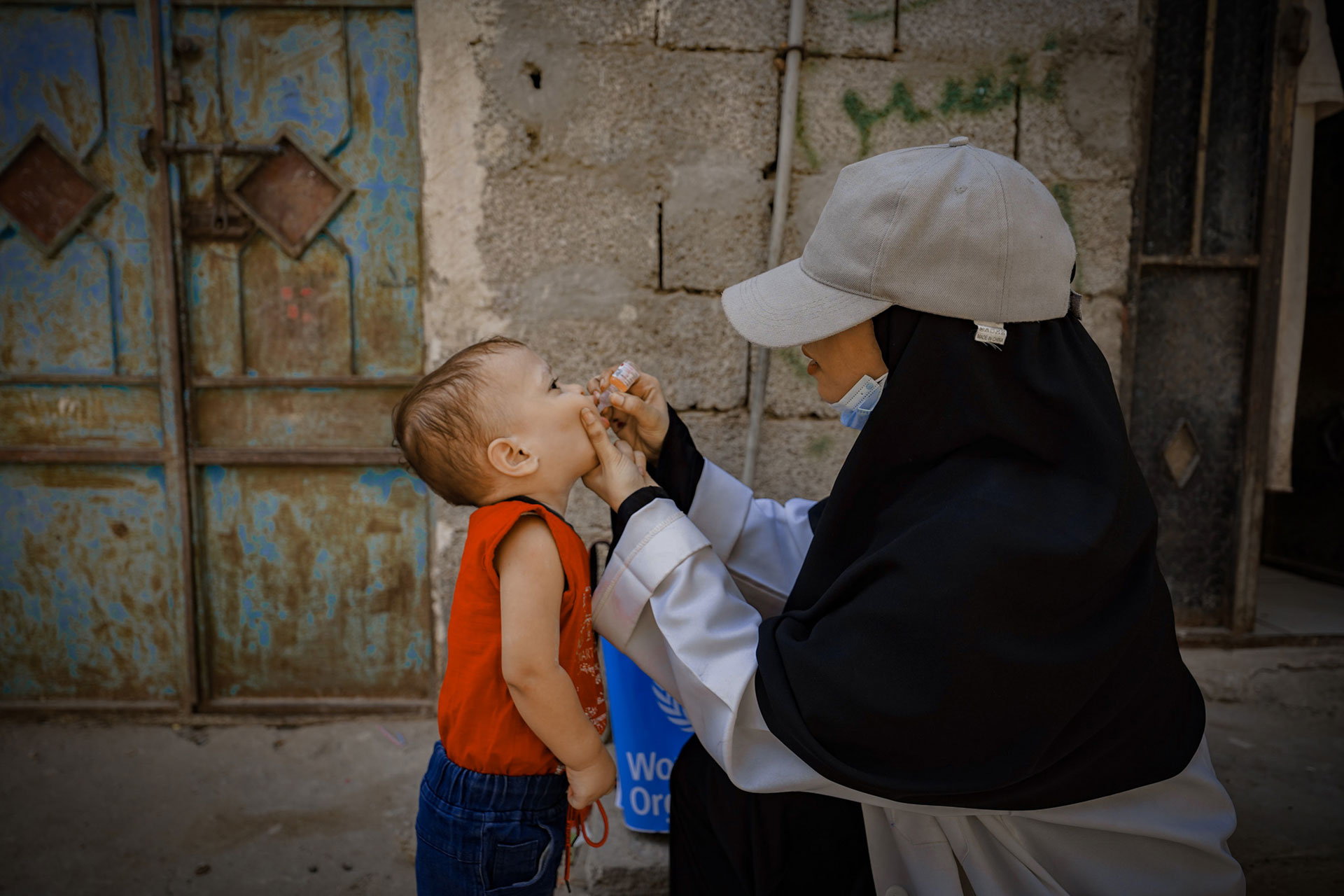 24 October 2025, Aden, Yemen – On World Polio Day, the World Health Organization (WHO) is warning of the ongoing spread of poliovirus and calls for intensified efforts to protect every child.
24 October 2025, Aden, Yemen – On World Polio Day, the World Health Organization (WHO) is warning of the ongoing spread of poliovirus and calls for intensified efforts to protect every child.
Polio, a preventable disease that can cause irreversible paralysis and death, remains a threat to Yemen’s children as the nation grapples with multiple overlapping health emergencies including cholera, measles, diphtheria and severe malnutrition.
Yemen has been battling an outbreak of variant poliovirus type 2 since 2021. The World Health Organization (WHO) warned today that 29 confirmed cases had been reported so far in 2025 amid the country’s protracted humanitarian crisis, declining vaccination coverage, and limited access to essential health services. These cases were reported from 10 governorates — the vast majority (28 cases) in the north — compared to 187 cases from 15 governorates in the whole of 2024.
“The outbreak of variant poliovirus type 2 in Yemen continues to strain an already overburdened health system,” said WHO Representative in Yemen Dr Syed Jaffer Hussain. “Through strengthened coordination with health authorities and partners and renewed integrated efforts to reach every child in every community we can stop the transmission of poliovirus and prevent further suffering.”
To bridge the immunity gap and curb the spread of the virus, WHO, working with the Ministry of Public Health and Population, has implemented 8 mass vaccination campaigns with type specific oral polio vaccine from 2022 to 2025. Complex security challenges in northern governorates, however, meant the campaign could not extend there, though both northern and southern governorates have been vaccinating children with injectable polio vaccine through routine immunization and integrated service delivery in an attempt to reach missed and vulnerable children in high-risk areas.
In 2025, 2 major vaccination rounds were conducted. The first, in July, reached 1.4 million children. The second, in September, saw more than 1.4 million children receive vaccines across 12 governorates. The campaigns are a testament to the determination of health workers operating in challenging and hard-to-reach environments.
WHO continues to support the Ministry of Health in integrating vaccination with broader primary health care services to ensure children in remote and underserved areas receive essential lifesaving interventions. WHO is strengthening acute flaccid paralysis (AFP) surveillance, laboratory capacity and community-based reporting to enable early detection and rapid outbreak response to new poliovirus cases.
“Polio eradication is possible, even in complex emergencies like Yemen,” said Dr Jaffer. “But it requires sustained investment, unrestricted access for health teams and continued partnership at all levels.”
While progress has been made, WHO stresses that additional resources and operational support are needed to sustain vaccination efforts and strengthen Yemen’s health system. The Organization calls on national authorities, donors and humanitarian partners to:
prioritize vaccination of all children under 5 through nationwide campaigns;
strengthen routine immunization systems to sustain long-term protection;
ensure safe, unhindered access for health workers in all governorates; and
protect and support frontline health staff delivering vaccines in challenging conditions.
Through collective effort and continued commitment, Yemen can move closer to ending variant poliovirus transmission and ensuring that every child grows up healthy, safe and protected from preventable diseases.
About WHO
Since 1948, the World Health Organization (WHO) has been the United Nations agency dedicated to advancing health for all, so that everyone, everywhere can attain the highest level of health. WHO leads global efforts to expand universal health coverage, direct and coordinate the world’s responses to health emergencies and connect nations, partners and people to promote health, keep the world safe and serve the vulnerable.
Media contacts
WHO Yemen Communications:








